Fearless Female
Ten questions with…Dany Pen
Published
5 years agoon

In this latest instalment of 10 Questions With…SheHub sits down with Dany Pen.
Dany Pen’s family arrived in New York City in the 1980s as refugees. Upon arriving in New York, her entire family were separated and sent to different parts of America. Dany’s mother was sent to Toronto, Canada where they both lived under the sanctuary of the church for a few years until they were transitioned to the community or Regent Park, which was notoriously known at the time as one of the most violent and high-crime ghetto in North America.
Always armed with a megawatt smile and her infectious laugh, Dany is the mother of two children. There is so much more to Dany that meets the eye. She is a warrior. She is a survivor. And she refuses to be anyone’s victim.
1. What shapes you most as a woman?
For me as a woman I find myself always trying to find a balance between softness and hardness. Being soft is much more difficult than to be hard. When you’re hard, you put on a tough exterior and an armor that protects every aspect of your being. When you choose to be soft, it is an acceptance to expose your most vulnerable parts which can expose you to raw emotions that can either make you or break you. Many of us hold our shields up constantly that we never let certain emotions in, however those feelings that we hinder from can challenge us and even potentially make us greater than who we are currently.
A reason why we don’t want to let our shields down is probably because we have been taken off guard emotionally at some point in our lives and there was a pain that had left a scar. To prevent that from happening again, we become over-protective and harden ourselves. This hardening can also break us as women, numb us from emotions, take us down a path of pain, depression, and a need for an escape from reality through drugs, alcohol and sex.
On the other hand, this can make us. Women have a way of also being resilient and picking themselves up after a hard fall. Getting up might not happen within a matter of seconds, sometimes it takes days, weeks and even years to get up from a fall. However, when you take control of choices and “choose” to be soft, you prepare yourself to face the struggle, the pain and hurt with an agreement to yourself that you will fight – and if you fall, you will get up no matter what. This is why being soft is difficult because you must also allow yourself to that experience. The acceptance of the experience and willing to turn it into something better for yourself is what shapes me as a woman.
2. What is one thing that people who don’t know you will be surprised by?
In regards to the history of the Khmer Rouge Genocide, many people actually know nothing about it or there’s a disconnect. For many, it is history, however for me, I live and breathe it every second of my life. Many people don’t understand that when their curiosity piques and they boldly ask questions, I find there is a lack of sensitivity and genuine understanding of the history. Many people assume it is my ancestors’ history when in fact, it is my story. People have a hard time comprehending that it wasn’t just my entire family who were murdered but it was my entire bloodline, my entire race, our entire being of who we are as people. Simple questions like, ‘Where is your family living now?’ can be hurtful in ways they would not know or understand.
Growing up in Regent, many people had a hard time understanding my relationship with my mother. It’s a relationship that needed its own revelation of truths. My mother’s struggle needed to occur in order for me to be a witness to her testimony – this also pushed me to strive for goals and pursue things that seemed impossible and ridiculous to many, such as going to college.
When I tell people my mother cannot read and write, it is often followed by a gasp of disbelief but they will never ask why she can’t read and write, they will always ask ‘Well why don’t she go to school?’
Many people don’t like to hear the roots to why she cannot read and write. You see, during the genocide when the Government sanctioned all Native Khmers to be executed, my mother as a child was forced to watch all the men in our family get executed. Her life was spared only because she would be taken into slavery. Those enslaved were forbidden to know how to read, write, sing and dance. But my mother loved singing and she would secretly sing knowing at any moment she could be caught and executed on the fields.
She cherished her music in her own thoughts, remembering every word that her father and mother use to sing to her as a child. My mother would also sing lullabies to me when I was a little girl; she would sing to me the same lullaby she had sung to two of her baby brothers as they died in her arms during slavery. Their bodies discarded in the ditch that she was forced to dig.
My mother didn’t know how to write her name. Since the beginning my mother drew pictures on my field trip notes as her signature, as a child I never minded it.
So, to many who ask why I became an educator, it is because once upon a time, my mother as an enslaved child standing on the rice plantation, had a dream.
3. Who or what in life has taught you greatest lesson so far?
My family’s resiliency and survival of the genocide has given me the greatest lesson in my life. I always tell myself, if my family could survive a genocide, imprisonment, torture, slavery, rape, sex trafficking – what could be worse? Every time I feel exhausted or emotional, I always remind myself how my mother made the daring escape out of slavery and trekked barefoot through the jungles for three months in hopes of freedom. Three months of walking, hiding, holding onto your breath, ducking bullets all around, bombs dropping from the air and mines exploding beneath your feet. As a young girl, I never really fully comprehended my mother’s journey and sacrifice, until I reached a point of maturity and understanding later in my life, and understood why she made certain decisions and choices.
4. What would you say to 18-year-old Dany?
Because I know myself, my 18-year-old self would not listen to any word from me or anyone else, but if I could go back and plant a seed of words I would tell myself, “Truth has its own timing.”
At age 18, I was always anxious for my questions to be answered and had no patience and understanding that truths come with raw emotions that could hurt you mentally, physically, and spiritually – and in ways you may not always be prepared for it. The ultimate weapon one can do for oneself is wait – “waiting is a weapon”. I would tell my younger self to wait and build on my education, my maturity, my growth, and my emotions because when you want the truth, you must make sure your mind, heart and spirit can comprehend and grasp it without letting yourself fall to pieces.
5. What made you champion for women’s rights?
My passion for advocating for human rights along with women’s rights and children’s rights, stems first from my family’s history. During the genocide, when many children finally escaped the slave camps, many of them thought they found freedom at the refugee camps led by NGOs and foreign government aid workers, however this would mark the beginning of child sex trafficking in South East Asia. You see, the first young girls and boys sold into sex trafficking were my own family members who were separated, sold, raped and then killed with their bodies discarded in the forest. Decades of trying to find lost family members who were taken as children has been an epic journey in itself.
My mother spent years of searching for her cousins but in truth would a two or three-year-old, if still alive, remember they still have family or would they be led to be believe that the war took everyone they knew and loved and they are all alone in this world? For a brief moment, my mother believed we were the only ones that survived the war and our bloodline was done for. It would take many more years of trying to find family members around the world – if any had survived. Those we were able to reunite with, almost every sister, aunt, and niece who survived were a victim of sex trafficking, torture, violence and rape.
This family story of violence against women and children would be echoed with my friends who I also grew up with in Regent Park. As refugees in America, we were all housed together in the same community. I also learned that the experience of slavery connected my mother to Hasan’s mother, to Mohammed’s mother to Saleed’s mother. Our community was made up of war survivors from Rwanda, Somalia, Bangladesh, Sri Lanka, and Nigeria to name a few.
I also learned, aside from being survivors of war, many of the women were also survivors of rape, trafficking, genital mutilation and forced marriages. As a young girl, I would sit and listen to their stories, and also witness their bodies. Their skins bore the scars of knife cuttings, burn marks, and tattoo brandings and just like my mother, they all also could not read and write. They wanted their stories to be heard but often times because it was very painful and hurtful to hear them, many people chose not to listen. I found myself wanting to put their voices on a loud speaker system and wanting the whole world to just stop for a moment and listen to them, but unfortunately many of them lost themselves to the world of addictions, continued the life of prostitution or chose suicide. I promised myself as a child, I would remember their stories and voice their injustices.
6. Have you ever been afraid to stand up for what you believed in?
There have been times I have had to take a moment to wait, which is something I have learned to do as I have gotten older (what I would’ve told my 18-year-old self to do). I would wait and prepare myself mentally, emotionally, and spiritually for the situation and brace myself for the battle. I would purposely reserve my energy for the war knowing that I may get hurt. Like all battles, Generals plan their strategies before they move on the field. You must know how to pick your battles and be honest with yourself in terms of your strengths and weaknesses. If I know I am weak in an area, I will wait and work on strengthening it first before making any more moves.
7. List your three pet peeves.
My three pet peeves are people who discriminate, feel entitled and cannot own up to their own faults and wrong-doings.
8. What is the greatest lesson you think every young woman should be taught?
Every young woman should be taught to see their own mother outside her role as a care giver and provider, and see her as a human being with her own story and lived experiences also. We tend to look at our mothers only in their domestic role and set up these expectations of them based on their relationship to us. We rarely see our mothers as counsellors, teachers…survivors…world changers. We also never really ask them those personal questions such as what did you want to be when you were a child? Did you ever fall in love with yourself? We also often don’t develop woman to woman relationships with our mothers.
Many of us have such high expectations of our mothers and if our mother doesn’t seem to live up to that role of provider and nurturer, as daughters we can be very unforgiving. Seeing our mothers outside their role, may also shed light on certain actions, decisions and behaviours they made in their lives.
We also forget that all mothers pray for their children.
9. When a person leaves your presence, what impact do you hope to leave on them?
I love life. It took me years to appreciate the gift of life and all the experiences that come with it. I find so many people give their energy to unnecessary situations and people and forget to enjoy their life. The one thing I have always found profoundly amazing with the women around me in Regent was that they were able to survive war, rape, death, torture and still somehow did not lose their laughter. If a person were to leave my presence, I would hope they would remember my laughter. I don’t mind people hearing my laughter in their thoughts and memories. I hope it would only ignite a smile on their face and remember life is about living, loving and laughing.
10. How do you feel when you visit Regent?
When my family arrived in America as refugees, we were moved to the projects of Regent Park, notoriously known for its high crime, murder rates, gangs and prostitution – but this is home for me. Whenever I go back home, there is a sadness but a somber happiness also. It might sound bizarre, but it is the one place I feel most safe, because I know where all the sinners are – their moves, places and motives – it’s all laid out in the open and in plain sight – I could navigate that and find my safe spots. However, outside the projects, everything is hidden, you don’t know people’s history, their characters and motives.
Growing up in Regent, everyone knew your experiences and struggles. No one had to ask what your ghetto story was because it was the same as everyone else’s. Leaving the projects, I would be confronted with the curiosity and biased mindsets of people, their own judgement, definition and idea of what the hood is – all created from the gatherings of what they watch on TV, movies and through music videos. Many people have this glamorisation of what it means to be from the hood but no one on the outside really wants to know the struggle.
It is the overcoming of these struggles and battles that one wins respect and earn their badges. The beauty of Regent Parkers is that with the experience of struggle, it also creates this raw loyalty that we have for one another. As an activist and advocate for human rights today, Regent Park definitely laid the foundation in allowing me to speak my mind boldly and vocalise injustice.
Do you know a young lady or woman who you’d like to answer ten questions with SheHub, please email your suggestion to shehubtv@gmail.com.
You may like
-
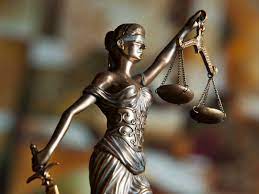

SheHUB Nigeria: Can Begging For Sex Lead To Sexual Coercion? Experts Clarify The Debate
-
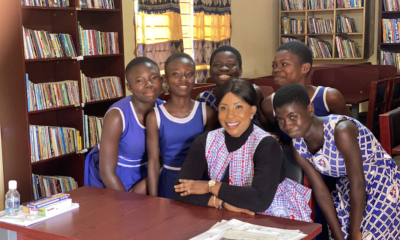

SheHUB Ghana: How One Woman Is Changing The Face of Education In Neglected Communities
-
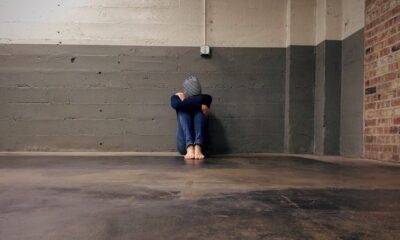

Twitter user: I’m thankful for the women who saved my life that night
-
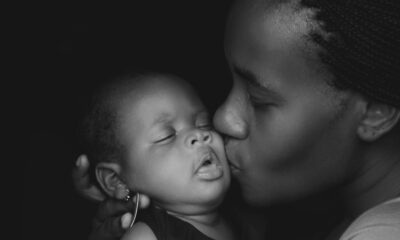

SheHUB Ghana: Single mothers fighting for survival
-
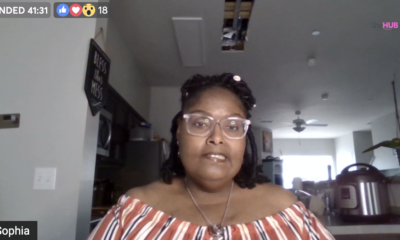

Sophia McCray: Victory against all odds (video)
-
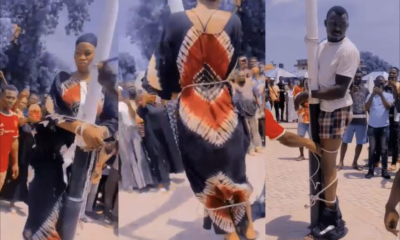

SheHUB Ghana: Actions of mob who flogged couple for filming sex heavily condemned
2 Comments
Leave a Reply
Cancel reply

SheHUB Nigeria: Shamsiya, the Nigerian woman padding young girls with love

International Women’s Month and How Herbode’s CEO Is Educating Girls And Building A Safe Haven For Survivors Of GBV



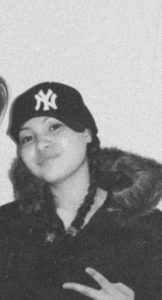
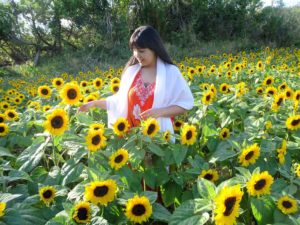


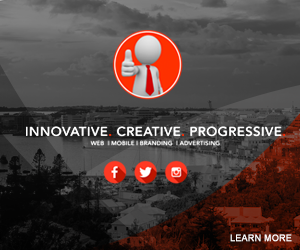

Raziya Swan
February 10, 2019 at 1:08 pm
Excellent!!! Dany’s story is amazing.
Barbie
February 12, 2019 at 11:56 am
Dany is a beautiful woman inside and out. She is a survivor and a warrior. I am enriched and encouraged by her story.